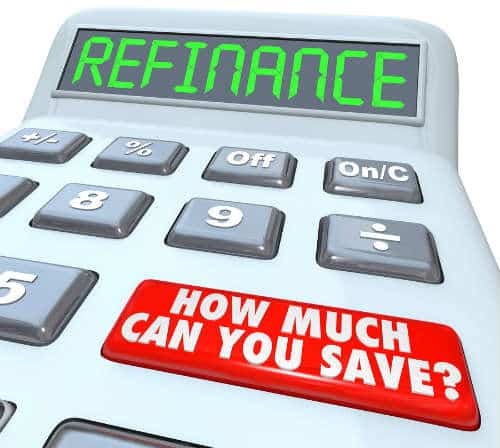Q: We have a 5% loan and we owe a little over $132,000 left on it. It was appraised at $168,000 in June 2010. We are now looking at refinancing it at 4.25%, and it was appraised at $148,000 dollars. Since the appraisal was low, we will have to take out PMI but it is only a $20 or so difference in payment.
Still at a 30‑year loan, and we plan on staying here for some time in the Midwest. Is it a good idea to refinance at this time, or leave enough alone? We have three kids in college and not a lot of money in savings.
A: The only good way to know whether or not a mortgage refinancing makes sense is to run some numbers and to do a break‑even analysis.
Your “break even” point is the number of months it will take you to recover the upfront costs of doing a refinance. To calculate your break-even point, you take the cost of your refinance and divide it by the difference in monthly payments (i.e. the monthly savings the refi will create).
Example: assume a refi costs $3,000. If it saves you $100 a month, your break-even point is 30 months ($3,000 divided by $100).
So essentially, to know whether refinancing a mortgage is a smart move, you have to ask and answer three questions.
Question #1: How much will the refinance cost you overall?
You need to know how much will you pay in upfront fees like appraisals, application fees, points to the lender, etc.
Question #2: What will be your net cost savings per month?
In other words, what will be the difference in price you’re paying for your mortgage after a refinance compared to what you’re paying now?
Question #3: How long do you plan to remain in your home following a refinance?
So let’s consider the first question: how much will it cost you to complete a refi?
You can get this information by asking a lender to supply you with a Good Faith Estimate about the proposed new loan. Just recognize that a Good Faith Estimate is just that – an estimate – and certain items could change.
For example, a lender may estimate the amount of days until the closing of the loan, and may calculate certain escrow costs (like prepaid interest) that are tied to your expected closing date. But your closing date could change, and your escrow expenses may wind up being more or less costly than predicted.
Nevertheless, the Good Faith Estimate should be very accurate in at least telling you the lender’s costs. For instance, if they charge $350 for an application fee, $20 for a credit check, and a $200 loan-processing fee, those expenses should remain consistent. In fact, if they give you a Good Faith Estimate with one set of fees, and then try to pull a fast one by raising those fees at the closing table, refuse to pay the increased fees and insist that the lender honor the original quote you received.
When it comes to projecting how much you will save, that’s easy enough. Your mortgage lender should be able to tell you what your new mortgage payment will be versus your existing payment. If they can’t, just use an online refinance calculator, like the one at HSH.com.
In your case, based on the information in your question, I made some assumptions about your existing loan of approximately $132,000 and I used the refi calculator at HSH.com. With a new 4.25% rate, compared to your current 5% rate, your upfront closing costs would likely be about $2,619 and your monthly savings would be around $73. If these were the only factors to consider, your “break even” point would be in 30 months, or two and a half years.
However, your net savings won’t really be $73 a month. That’s because you have to pay PMI, Private Mortgage Insurance, of $20 a month as well. So you definitely need to take that into consideration too.
When you add in the $20 you have to pay for PMI, your net savings after the refinance is $53 a month. With loan costs of $2,619, your true break-even point is 49.4 months, or just over four years.
Lenders charge PMI on a mortgage when you have less than 20% equity in the home. You’ve indicated that the house you own was appraised at $148,000, and that you have about a $132,000 mortgage balance on it. So you have roughly a 10% equity stake in your home, and your refinanced loan would have a 90% loan‑to‑value ratio.
Read: I am thinking about buying a second home. How much house can I afford?
Again, you’ll have to keep paying that PMI until you hit the 20% equity point. Since you plan on staying in your home for some time, that works in your favor in terms of doing a refinance. That’s the third factor you need to consider in deciding whether or not a refinance is economically a smart move.
Generally speaking, the longer you plan to stay in a home, the more it makes sense to do a refinance given the upfront costs that you have to pay. But again, the only way to know for sure is to do a break‑even analysis with a refinancing broker and run the exact numbers.








